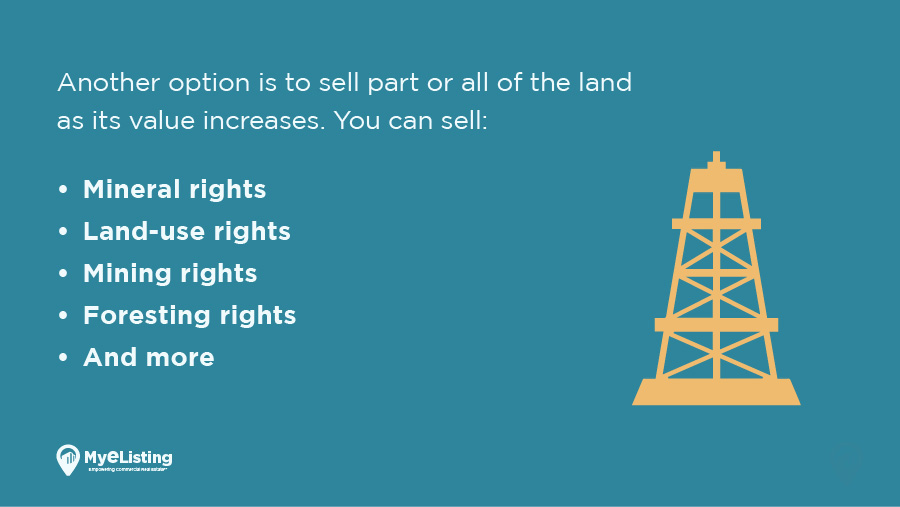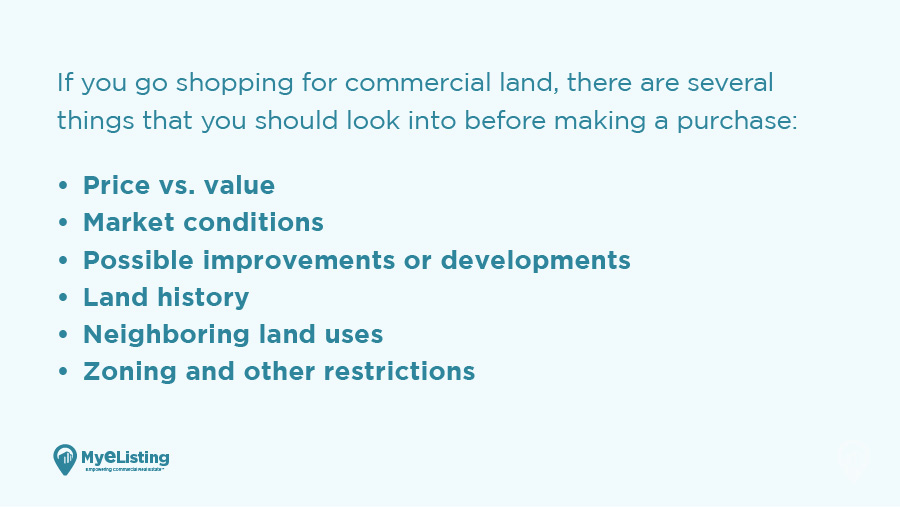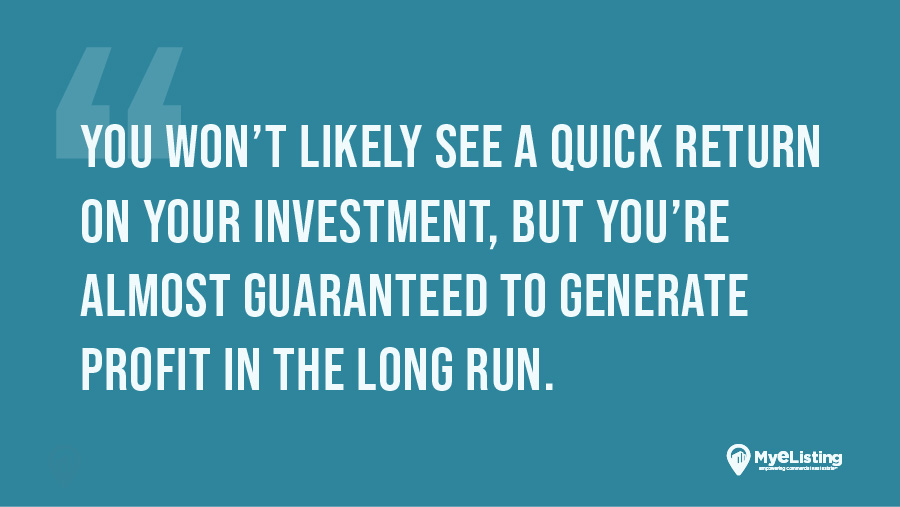Is Buying Commercial Land a Good Investment?

Specializes in providing actionable insights into the commercial real estate space for investors, brokers, lessors, and lessees. He covers quarterly market data reports, investment strategies, how-to guides, and top-down perspectives on market movements.

As the saying goes: “Buy land. They’re not making any more of it.” And while this is most certainly true, the decision to invest in land is a little more complicated than that.
Buying commercial land for sale is a particularly good investment: It’s one of the ways that many institutional and private investors have built their fortunes. There are several types of land to invest in, each with its own set of pros and cons.
Let’s take a closer look at why buying commercial land is a good investment and how you can use it to your advantage.
Why Is Commercial Land a Good Investment?

Commercial land is a good investment for several reasons. Firstly, owning property means you can control how it’s used, giving you multiple methods of making money.
Some companies choose to lease land for their buildings rather than owning the land outright. This lets you collect lease rent from tenants who use your land.
Another option is to sell part or all of the land as its value increases. You can sell:
- Mineral rights;
- Land-use rights;
- Mining rights;
- Foresting rights;
- And more.
The value of land doesn’t fluctuate as much as other investments, which means that the value is likely to go up over time, and you can use it as a value-holding investment to hedge your portfolio against volatile market movements.
Another reason commercial land is a good investment is that you can use it as collateral against loans. When reviewing applications, banks often look at land as an asset because it’s harder to lose and has a higher resale value.
This could make it easier for you to take out a loan without posting any personal assets (like your house) as collateral, and therefore make it easier for you to leverage loans to make more profit in your other business ventures.
What Questions Should I Ask When Buying Commercial Land?
Before buying commercial land, you should ask a few important questions. These include the following.
How Will You Use the Land?
First, why are you buying the land? Perhaps you want to construct a commercial property on it or lease it out to hunters and farmers. You could also sell the land and make a profit, either now or in the future.
What Value Does the Land Have?
You need to know what value the land has collectively and any features that make it more valuable. For example, land that sits on a major highway may be far more valuable due to its easy access than, say, land that’s sitting in the middle of remote woodland.
However, land that’s covered in trees can be valuable for selling lumber. Knowing the true value behind your land within its location, assets, and other features will truly help you turn a profit in the long run.
What Do You Have to Do to Maintain the Land’s Value?
Maintaining your land is equally as important as getting the best deal possible. Environmental assessments play a huge role in land investments, and they cannot be overlooked.
If your investment fails the necessary environmental assessments that it needs to pass in order to be usable, its ability to generate profit will be largely eliminated.
Stay on top of maintenance, and your land investment will retain its short-term and long-term value.
What Should I Look for When Buying Commercial Land?

If you go shopping for commercial land, there are several things that you should look into before making a purchase:
- Price vs. value;
- Market conditions;
- Possible improvements or developments;
- Land history;
- Neighboring land uses; and
- Zoning and other restrictions.
You’ll need to gather information about the overall market conditions and potential future uses of the land. You can do this by talking to real estate agents, doing your own research, or consulting with someone with experience in the area.
Make sure that you thoroughly investigate the history of the land so that you understand how it’s been used in the past. This will also help you get a better idea of the future potential of the land.
Another important thing to consider is zoning. Each land parcel has a certain zoning designation, and you need to make sure that your chosen land is zoned correctly. You need land that can be used for the purposes that you intend to use it for, such as industrial, residential, or commercial.
Is Vacant Land a Good Investment?
Vacant land can be a great investment if you have a well-drafted business plan. You should have a solid idea of what exactly you plan to do with vacant land before you start browsing.
That said, vacant land carries many uses. For example, you could find a property developer to sell it to. You could also lease the land to a company that wants to build on it. You can also hold onto the land until the value increases and sell it.
Overall, vacant land is one of the more flexible land investments. Consider working with a commercial real estate broker to help you find a parcel that’s right for you and your investment goals.
What Are the Primary Types of Land Use?
The primary types of land use include residential, commercial, and industrial. Each plot of land is divided into these categories so that certain industries can co-ordinate where they are relative to each other.
- Residential is self-explanatory as a type of land use: It’s land that’s zoned for housing purposes. People live on residentially zoned land in either single-family or multifamily homes.
- Commercial is land zoned for business use. It can be near residential land or industrial land, depending on what’s being built on the plot of commercial land.
- Industrial is land zoned for manufacturing and inventory storage. The largest parcels of land are often used for industrial purposes, and industrial property usually stays far from residential property.
There are other types of land zoning, but these are the main three. Working with the right commercial real estate professionals can help you decide which type of land is best for you.
What Are Some Common Issues With Land Investments?

Despite all this positive enforcement around investing in land, there are a few common issues that you need to be aware of when buying your first parcel.
First, remember that land belongs to mother nature. Your ideal parcel may have issues with flooding or other natural disasters. Your land may also be in a less-than-ideal location susceptible to crime and other man-made annoyances.
These issues can significantly affect the value of the land and your investment. But it’s important to understand that land is a long-term business. You won’t likely see a quick return on your investment, but you’re almost guaranteed to generate profit in the long run.
Do your research, stay diligent, and happy investing.
List & Browse Land for Free on MyEListing.com!
You can list and browse land for free right here on MyEListing.com.
Simply sign up for a free account and get unlimited access to accurate local market intelligence, customized property type alerts, comp software, and more.
Article Search
Share
All Article Categories








